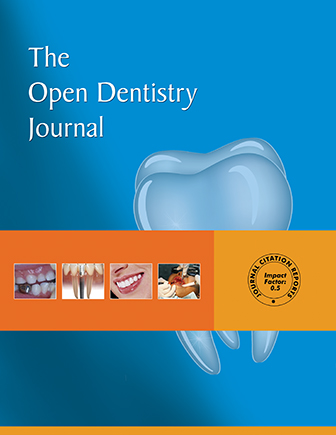All published articles of this journal are available on ScienceDirect.
Oral Health Status of Chinese Paediatric and Adolescent Oncology Patients with Chemotherapy in Hong Kong: a Pilot Study
Abstract
Aim:
To study the oral health status of Chinese children and adolescents undergoing chemotherapy in Hong Kong.
Method:
All Chinese children and adolescent oncology patients aged 18 or below attending the Children's Centre for Cancer and Blood Disease at a hospital for chemotherapy were invited and parental consent was sought before they were accepted into the study. The study comprised of 1) a parental questionnaire, 2) the collection of medical history and 3) a clinical examination for tooth decay (caries) and mucosal status.
Results:
A total of 69 patients were invited, and they all participated in this study. Their mean age was 9.2±5.0 and 44 (64%) were males. Twenty-six patients (38%) had no caries experience (DMFT and/or dmft = 0). Higher caries experience was detected in participants that were not born in Hong Kong, had completed active chemotherapy, participated in school dental care service and whose parents had low educational levels. There were 41 patients with active chemotherapy, 24 of whom were diagnosed with acute leukaemia, 5 with haematological malignancies other than leukaemia and 11 with solid tumours. Antimetabolites, cytotoxic antibiotics, alkylating agents and plant alkaloids were administered in 49%, 32%, 24% and 22% of them, respectively. Twenty-six (63%) patients showed no mucosal complications. The most common oral complication was oral mucositis (24%) followed by petechiae (10%).
Conclusion:
About two-thirds of paediatric and adolescent cancer patients had caries experience, which was more common among those who had completed chemotherapy. Oral mucositis followed by petechiae were the two most common complications of receiving chemotherapy.


